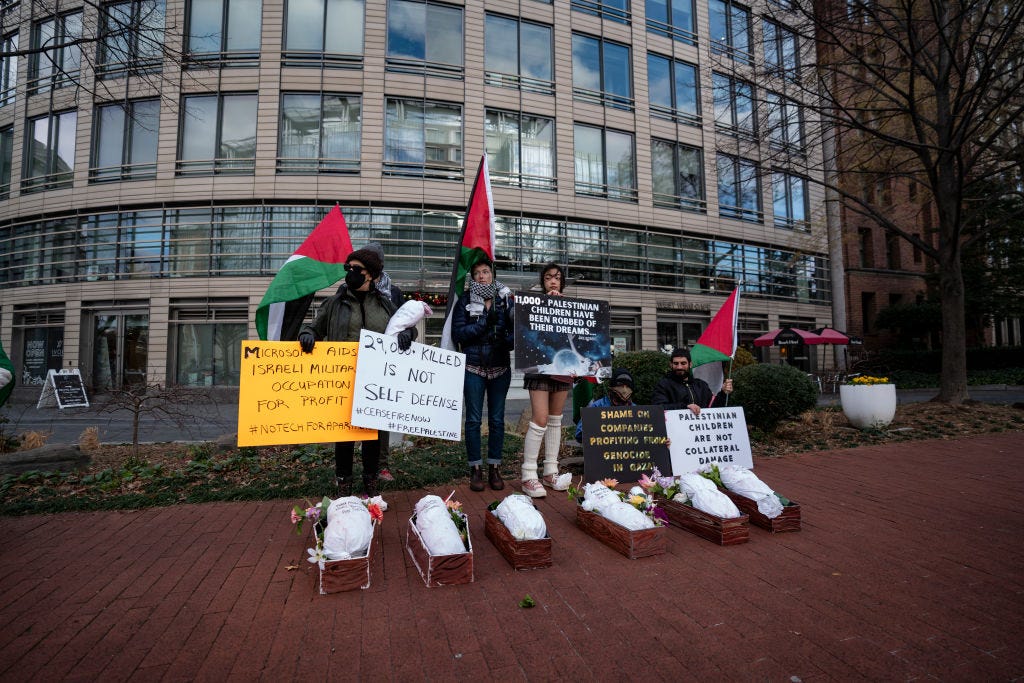As long as Sammo Hung isn't Arsenio's running mate because that would result in Martial Law!Though, I mean, Bill Clinton would qualify too. Remember when we elected someone as President because he played a saxophone on Arsenio Hall... and then he balanced the budget? (Clinton, I mean, not Hall. I don't know how well Hall would do at the job, but he couldn't be worse than Trump.)
US 2024 Presidential Election
- Thread starter gorfias
- Start date
Pure-hearted Jesus-loving Christian JD Vance says "it's gross to get fired up" about the fact that an innocent man was deported and sent to a prison in El Salvador.

 www.newsweek.com
www.newsweek.com
"He also apparently had multiple traffic violations for which he failed to appear in court. A real winner." Hear that, scofflaws? Pay off those parking tickets OR ELSE!
Mind you, the government has admitted that the deportation was an error. But hey, it's not JD Vance sitting in a jail cell for no reason, so why should anyone care?!

JD Vance defiant after man deported by error: "Gross to get fired up"
The vice president has hit back after Immigration and Customs Enforcement admitted to an administration error.
"He also apparently had multiple traffic violations for which he failed to appear in court. A real winner." Hear that, scofflaws? Pay off those parking tickets OR ELSE!
Mind you, the government has admitted that the deportation was an error. But hey, it's not JD Vance sitting in a jail cell for no reason, so why should anyone care?!
Its kinda funny Vance draws the like at parking tickets while working for a coup doing rapist."He also apparently had multiple traffic violations for which he failed to appear in court. A real winner." Hear that, scofflaws? Pay off those parking tickets OR ELSE!
This guy spoke at an online lecture for a class I had to attend. And he just left the US. FML. It's getting more real by the day.
The wonderful new tariffs Trump just announced

And now we just have to wait for global markets to respond as the impact of America's new strength take hold.

And now we just have to wait for global markets to respond as the impact of America's new strength take hold.
I believe the cliche used to be "he's no angel". Parking tickets is a new one.Pure-hearted Jesus-loving Christian JD Vance says "it's gross to get fired up" about the fact that an innocent man was deported and sent to a prison in El Salvador.

JD Vance defiant after man deported by error: "Gross to get fired up"
The vice president has hit back after Immigration and Customs Enforcement admitted to an administration error.www.newsweek.com
"He also apparently had multiple traffic violations for which he failed to appear in court. A real winner." Hear that, scofflaws? Pay off those parking tickets OR ELSE!
Mind you, the government has admitted that the deportation was an error. But hey, it's not JD Vance sitting in a jail cell for no reason, so why should anyone care?!
This is so, so stupid
Apparently that "trade barriers and currency manipulation" bullshit just means that they took the trade deficit as a percentage, and the reciprocal tarif is half that
So if we have a trade deficit with, say, Vietnam, where we import $10 of their stuff for every dollar they buy from us, that counts as a "tariff"
Hence the 46% tariff on everything they send us
That Switch 2 is gonna cost $700 next month
Apparently that "trade barriers and currency manipulation" bullshit just means that they took the trade deficit as a percentage, and the reciprocal tarif is half that
So if we have a trade deficit with, say, Vietnam, where we import $10 of their stuff for every dollar they buy from us, that counts as a "tariff"
Hence the 46% tariff on everything they send us
That Switch 2 is gonna cost $700 next month
Its $700 for me right now, so uh, welcome to a very shitty club.This is so, so stupid
Apparently that "trade barriers and currency manipulation" bullshit just means that they took the trade deficit as a percentage, and the reciprocal tarif is half that
So if we have a trade deficit with, say, Vietnam, where we import $10 of their stuff for every dollar they buy from us, that counts as a "tariff"
Hence the 46% tariff on everything they send us
That Switch 2 is gonna cost $700 next month
- Feb 7, 2011
- 8,759
- 3,334
- 118
- Country
- 'Merica
- Gender
- 3 children in a trench coat
Where's Phoenix to tell us that the Trump tariffs aren't really going to happen and that everyone who believes in them is stupid?The wonderful new tariffs Trump just announced

And now we just have to wait for global markets to respond as the impact of America's new strength take hold.
not sure if curtis yarvin is known or mentioned of much at all here, I don't remember seeing them about. but they're as influential as peter thiel/JD Vance... moreso even as he's pretty much the person who the tech bros and peter actually look up to for their systemic attempt at dismantling democracy. if there's any doubt how rotten these minds are, an example of rheir bonding philosophy is a criticism he had of Norwegian mass shooter who killed 77 people at a summer camp
and slavery;Yarvin wrote that Breivik should be condemned because his 2011 massacre in Oslo was ineffective as terrorism, which Yarvin considers a legitimate military tactic. Nazi terror was legitimate because it worked, Yarvin wrote. Breivik’s killing spree, which targeted young Norwegian leftists, was illegitimate because it was insufficient to “free Norway from Eurocommunism.” After all, he only killed ninety-two people! “We can note the only thing he didn’t screw up. At least he shot communists, not Muslims. He gored the matador and not the cape,” Yarvin wrote on July 23, 2011, one day after the terror in Oslo
Not all humans are born the same, of course, and the innate character and intelligence of some is more suited to mastery than slavery. For others, it is more suited to slavery. And others still are badly suited to either. These characteristics can be expected to group differently in human populations of different origins. Thus, Spaniards and Englishmen in the Americas in the 17th and earlier centuries, whose sense of political correctness was negligible, found that Africans tended to make good slaves and Indians did not. This broad pattern of observation is most parsimoniously explained by genetic differences.
A person makes a good slave if he is loyal, patient, and not exceptionally bright or stubborn. But even great intelligence is not necessarily a bar to a good experience in slavery, as the experience of many Greek slave philosophers, such as Epictetus, shows. A slave must carry the unique burden of personal dependency and obedience, which we are all used to expressing only toward impersonal government agencies.
hey noone said these guys were smart. just rich alenough to buy enough simpering fools to maintain the illusion they areYarvin’s Dark Enlightenment dogma also is steeped in pseudoscientific racism. Yarvin preaches that intelligence is determined in large part by the laws of “human biodiversity”—which hold, in his telling, that white people are congenitally smarter than black and brown people, and that Chinese people may be the smartest of all. It takes no great stretch of the imagination to see how a blood-and-soil white nationalist like Bannon and a racist bomb thrower like Donald “Good Genes” Trump would find a great deal of reassurance in this toxic philosophy.
Yarvin’s idea of enlightenment also means believing that history as we’ve come to know it is a lie. It means believing that the Soviet Union was the greater evil in the Second World War and that Nazi Germany acted in preemptive self-defense against the nefarious scheming of Stalin and FDR. It also means believing that ever since that war, upstanding American fascists have been unjustly persecuted by the state, and that the United States has been ruled by a conspiracy of wealthy establishment Communists and a “ruling underclass” of violent black mobs who are their eager pawns.
"If Americans want to change their government, they're going to have to get over their dictator-phobia."
That's neo-reactionary philosopher Curtis Yarvin in 2012, when he outlined a strategy that's eerily similar to how Trump and Musk are now destroying our government. The "dark enlightenment" blogger, long a transgressive darling of the New Right, has in the last two months enjoyed a fresh round of mainstream exposure.
We look at a man who has the ear of those who are reshaping our world at breakneck speed.
Show Notes
That's Bait - by Jeff Sharlet
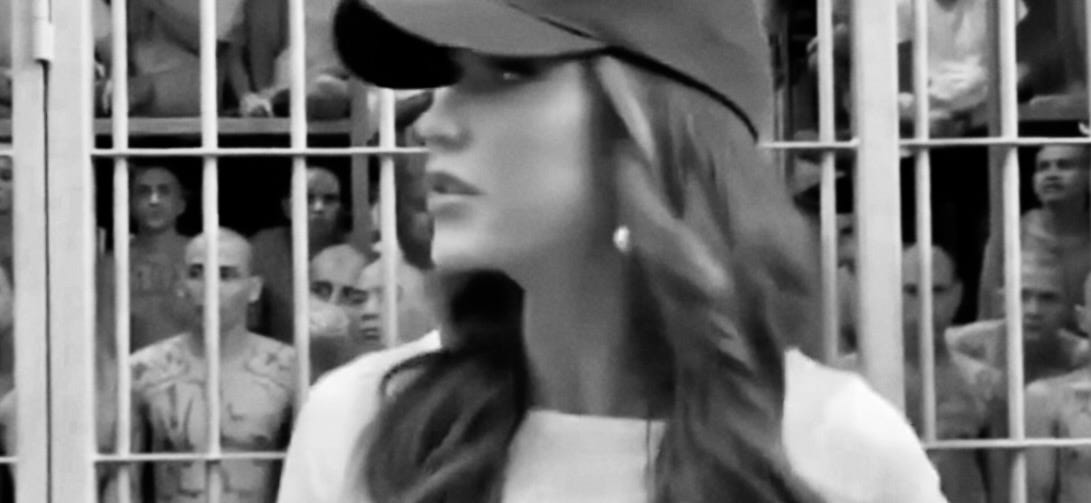
Kristi Noem Gets a MAGA Makeover - The New York Times

The Trumpification of Kristi Noem (Published 2024)
The South Dakota governor’s new teeth are just the latest step in a very MAGA makeover.www.nytimes.com
Kristi Noem’s New Teeth Are Blowing Up in Her Face | Vanity Fair
Venezuela-hired lawyers file petition in El Salvador aimed at freeing Venezuelans deported by US | AP News
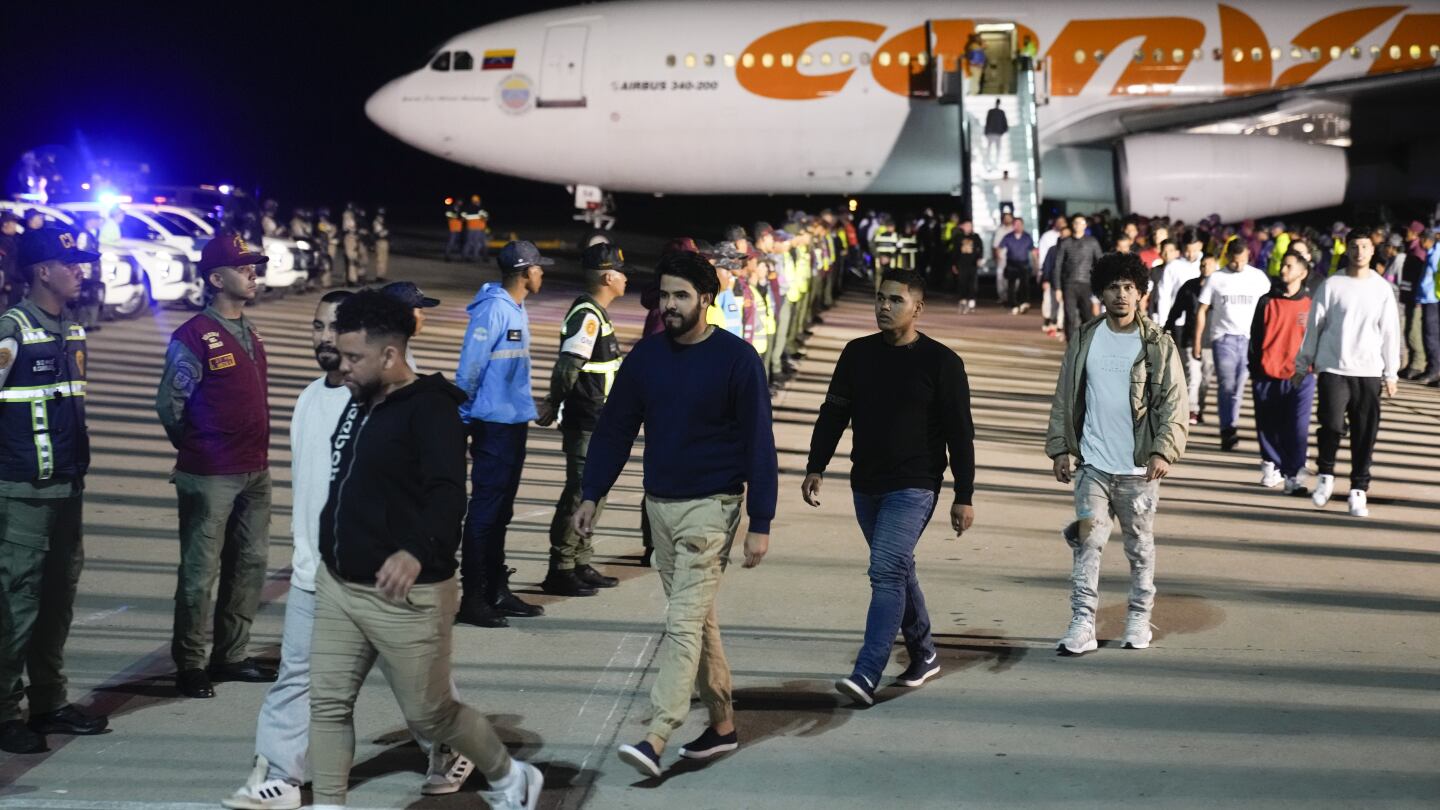
Venezuela-hired lawyers file petition in El Salvador aimed at freeing Venezuelans deported by US
Lawyers hired by the Venezuelan government have filed a legal action in El Salvador aimed at freeing 238 Venezuelans deported by the United States.apnews.com
Kristi Noem’s El Salvador Prison Photo Op Might Have Violated the Geneva Convention

Kristi Noem’s El Salvador Prison Photo Op Might Have Violated the Geneva Convention
Department of Homeland Security Secretary Kristi Noem's photo op in an El Salvadoran prison drew swift backlash online, but some observers are pointing out that it may have also violated the Geneva Convention.www.mediaite.com
Trump wants FEMA gone. But that could be its own kind of disaster.
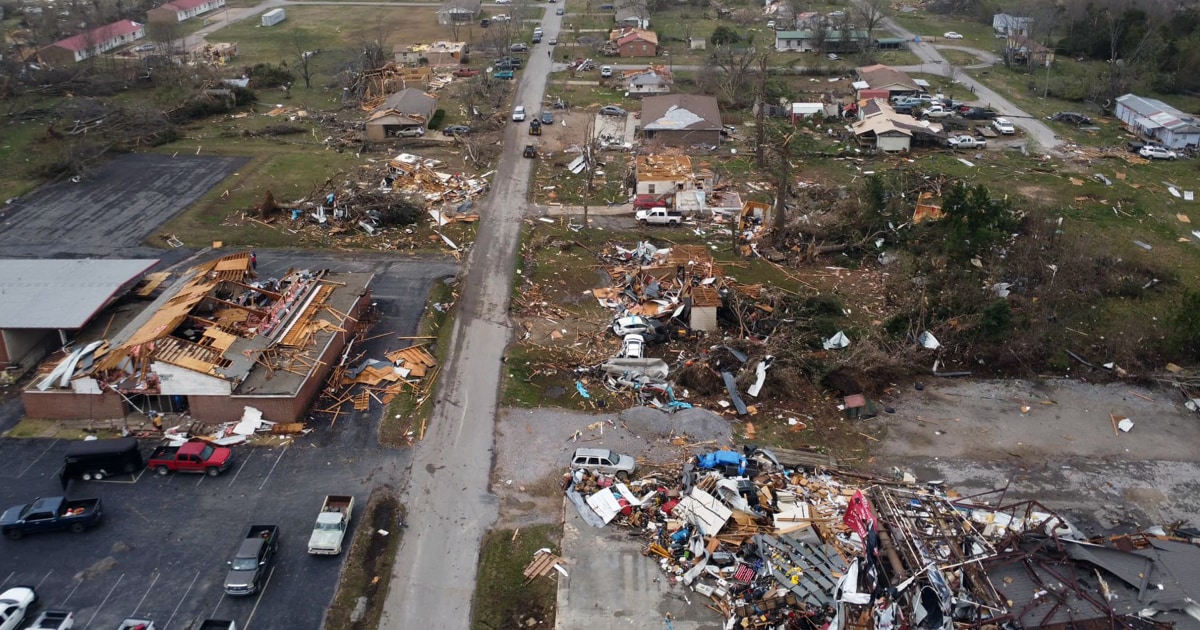
Opinion | Trump wants FEMA gone. But that could be its own kind of disaster.
It’s likely that Trump, as he so often is, is being guided by grievance.www.msnbc.com
DHS Secretary Kristi Noem posed in front of El Salvador prisoners wearing $50k watch

DHS Secretary Kristi Noem posed in front of El Salvador prisoners wearing $50k watch
Kristi Noem appeared in a video in front of CECOT prisoners in El Salvador wearing a $50k Rolex watch. Human rights groups raised criticized the move.eu.usatoday.com
Will Stancil: "The El Salvador government is using its concentration camp as a kind of Disneyland thrill ride for right-wing influencers”

Will Stancil (@whstancil.bsky.social)
The El Salvador government is using its concentration camp as a kind of Disneyland thrill ride for right-wing influencers. The reason those guys are standing silently shirtless behind Noem is that they’ve been asked to do it again and again, it’s part of the whole ridebsky.app
Kelly Brogan’s Divine Dungeon: Pt 1 (feat/Esme Providence Brown)
Kelly Brogan’s Divine Dungeon: Pt 2 (feat/Esme Providence Brown)
‘All life is a service’: The Contested Erotics of Fascism from Foucault to Frost – Retrospect Journal

‘All life is a service’: The Contested Erotics of Fascism from Foucault to Frost
The sexualisation of fascist aesthetics has received a great deal of critical and philosophical analysis. Georgia Smith examines this discourse and the convergence of eroticism and fascism.retrospectjournal.com
Cathedrals of Erotic Misery • Ill Will

Cathedrals of Erotic Misery • Ill Will
Alberto Toscano explores fascism’s erotic afterlives.illwill.com
Politico Yarvin Interview
Financial Times on Dark Enlightenment - TIME on Dark Enlightenment
Common Dreams on Dark Enlightenment/DOGE
NYT Podcast End of Democracy
Jennifer Kollmer, 1971-2021 — Yarvin’s obit poem, TW on the rest of the blog!

Jennifer Kollmer, 1971-2021
"No one will ever see the rock on which I stood."graymirror.substack.com

BDS adds Minecraft, Microsoft to boycott list...Loomer nukes "Neocon Security Council"...Tariff breakdown...
AND: The State Department and the Pentagon are battling the deep state over the future of India and China

BDS calls for Boycott of Microsoft Game Pass, Minecraft, New XBox Consoles
No more Call of Duty. No more Minecraft. No more XBox (unless you already own one).
wondered when ms was gonna make the list. would be interesting seeing how logistically challenging that would be for some in america thoughBDS calls for Boycott of Microsoft Game Pass, Minecraft, New XBox ConsolesNo more Call of Duty. No more Minecraft. No more XBox (unless you already own one).
A silent protest held outside of Microsoft on December 29, 2024. (Photo by Andrew Thomas/NurPhoto via Getty Images)
The BDS National Committee (BNC) has decided to make Microsoft a “priority target” to pressure the company to end its support for Israel’s war effort, after revelations that its AI and cloud services have been heavily used in the genocidal assault, organizers told Drop Site News.
The decision follows an employee-led campaign called No Azure for Apartheid, a reference to Microsoft’s AI program, demanding that Microsoft sever contracts and partnerships with the Israeli military and government. Two Microsoft employees fired for their activism, Abdo Mohamed and Hossam Nasr, played key roles in driving the BNC’s decision. The pair organized a vigil outside the company’s headquarters in 2024. The BNC is the largest coordinating body for the worldwide coalition committed to the “Boycott, Divestment, and Sanctions” (BDS) movement, which acts nonviolently to pressure Israel into ending its occupation and apartheid.
Beginning in 1986, Microsoft had once boycotted South Africa to oppose its apartheid. Now, its technology supports apartheid in Israel.
Drop Site News has never used Microsoft products. Support our journalism with a free or paid subscription:
A statement from the BNC laid out the rationale:
The committee is asking all those who have taken its pledge to take three concrete steps, according to a statement provided to Drop Site:Microsoft is perhaps the most complicit tech company in Israel’s illegal occupation, apartheid regime and ongoing genocide against 2.3 million Palestinains in Gaza which is why Microsoft is a now priority BDS target. Microsoft partners with the apartheid regime of Israel and its prison system. It provides the Israeli military with Azure cloud and AI services that are central to accelerating Israel’s genocide of 2.3 million Palestinians in the illegally occupied Gaza Strip. After 34 years of deep complicity with Israel’s military, the Israeli army relies heavily on Microsoft to meet technological requirements of its genocide and apartheid regime.
1. Cancel your Xbox Game Pass subscription2. Boycott Candy Crush, Minecraft, and Call of Duty—flagship videogame franchises owned by MicrosoftFor those who already own the games or the console, the organizers said, the ideal move would be to stop playing, but the primary ask from organizers is to help deprive Microsoft of revenue. Therefore, players can be compliant with the boycott by avoiding future purchases of games or consoles and by avoiding transactions inside the games.3. Boycott all Microsoft Gaming products, including Xbox-branded consoles, headsets, accessories, and all games published by Microsoft-owned publishing labels (such as Xbox Game Studios, Activision, Bethesda and Blizzard)
Asked to clarify whether the boycott included the beleaguered Microsoft Teams, Mohamed added that the overall goal is to boycott all Microsoft products, but he acknowledged that few people use some of the company’s trashier products of their own free will. "We are calling on everyone to boycott Microsoft products whenever feasible and possible. So, yes, boycott Microsoft Teams, too,” he said. “Although, I am not sure if anyone is using that willingly.” Drop Site could not independently verify whether anybody has ever used Teams willingly, though experts said it was unlikely.
While some of its products may be a joke, others are deadly serious: Microsoft products have been used in a campaign that has killed more than 50,000 Palestinians since October 2023. “Microsoft and its executives have made it abundantly clear that they are choosing to maximize their profits by selling Cloud and AI technology to form the technological backbone of Israel’s automated apartheid and genocide systems,” Mohamed said. “At the same time, these executives are ignoring human rights commitments, avoiding to address the company's deep ties with the Israeli military when asked, and actively repressing workers who are speaking up internally through suppression, intimidation, and retaliation.”
Hossam Nasr said that Microsoft had effectively become a weapons manufacturer. “As we've learned more about the deadly blood-stained partnership between Microsoft and the genocidal Israeli military, there's been a growing recognition that cloud and AI provided by Microsoft is as essential to Israel's destruction in Gaza as physical munitions,” said Nasr. “Put simply, cloud and AI are the weapons of the twenty-first century, and Microsoft is effectively a weapons manufacturer powering a genocidal apartheid regime. We must treat it as such.”
Bella Jacobs, tech campaigns coordinator for the Palestinian BDS National Committee, said that the decision to target Microsoft was the culmination of thirty-four years of complicity. "It’s time to hold Microsoft accountable for its crucial role in backing Israeli apartheid for 34 years and selling AI for genocide in Gaza,” she said. “Palestinians are asking for solidarity through strategic, targeted boycotts, divestment and sanctions to protect human rights. Together, we can hold Microsoft accountable and build a better world in which technology is not a tool of oppression and genocide.”
Loomer nukes "Neocon Security Council"...Tariff breakdown...
AND: The State Department and the Pentagon are battling the deep state over the future of India and China
Laura Loomer confirmed to Drop Site she visited Trump in the Oval Office. In front of National Security Advisor Michael Waltz, she presented research on a list of senior officials she argued were warhawks and neocons who had slipped through during the vetting process. Trump has now fired a considerable number of them, including Doug Feith’s son. Administration sources tell Drop Site that officials had begun calling Waltz’s department the “Neocon Security Council”—but that was before Loomer walked in and torched the place. The meltdown at the NSC comes as there’s an intense jockeying over the direction of Trump’s foreign policy, which is the subject of the piece below, written with my colleague Murtaza Hussain, that we’re publishing today.
The story below pulls on a thread from Trump’s join address to Congress, when he claimed to have caught the “top terrorist” responsible for the bombing in Kabul that killed 13 American service members. We can report that his claim is a lie. But what’s more interesting is why that lie was told, and how it got into his speech. It turns out to be at the center of a major internal confrontation over the future of American foreign policy. It’s a fairly in depth piece, but I think you’ll be glad you read it.
U.S. President Donald Trump speaks to the media alongside Richard Grenell at the Kennedy Center on March 17, 2025. Photo by Chip Somodevilla/Getty Images.
During his joint address to Congress, President Donald Trump announced what he described as a major victory. “America is once again standing strong against the forces of radical Islamic terrorism,” he intoned. “Three and a half years ago, ISIS terrorists killed 13 American service members and countless others in the Abbey Gate bombing during the disastrous and incompetent withdrawal from Afghanistan.”
Trump’s comments referenced an infamous ISIS attack that targeted fleeing U.S. troops and Afghan citizens at Hamid Karzai International Airport in Kabul, during the waning days of the U.S. occupation of the country. The attack killed 13 U.S. troops and over 170 Afghan civilians. In his speech, Trump dubbed the attack, “perhaps the most embarrassing moment in the history of our country,” before telling Americans that he had brought the perpetrators to justice—with the help of a particular foreign government. “Tonight, I am pleased to announce that we have just apprehended the top terrorist responsible for that atrocity, and he is right now on his way here to face the swift sword of American justice,” said Trump, before adding, “And I want to thank the government of Pakistan for helping arrest this monster.”
Pakistani security forces, he alleged, had caught the ostensible mastermind of the deadly bombing—Mohammad Sharifullah, also known as “Jafar”—and rendered him to the U.S. to face justice. For the Pakistani military, which is currently leading the country, and its allies in the CIA, Trump’s small aside was cause for jubilation. It also signaled a win for the military government in its efforts to build ties with the Trump administration, after years of an eroding relationship with the U.S.
The claim that Sharifullah was the mastermind of the attack, however, does not hold up to scrutiny. And not everyone was pleased by the rapprochement between Trump and Pakistan; at the Pentagon, the U.S. State Department, and at Adiala Jail in Rawalpindi, Pakistan—the current home of ousted Prime Minister Imran Khan—the reaction was quite the opposite. According to sources with knowledge of the debate now unfolding inside the U.S. government, Sharifullah’s rendition and Trump’s claims about it now sit in the center of a confrontation between the American intelligence community and its military allies in Pakistan on the one side and the Pentagon and State Department on the other. The outcome of that confrontation will set American policy in the region for years to come.
Senior officials at the Pentagon and State Department want to pivot away from the military and empower civilian leadership and democratic rule in Pakistan, and Richard Grenell, who now serves as Trump’s envoy for special missions, has been outspoken in his calls to free Khan and restore democracy to Pakistan. But the CIA, which has worked closely with Pakistan’s Inter-Services Intelligence (ISI), based in Rawalpindi, for decades, sees the military and security establishment as a more reliable partner than the country’s civilian authorities.
“This is an interagency battle regarding who gets what responsibility under the upcoming new national security policy that is slated to come into effect around late April and early May,” said one source close to the discussions. “The CIA is trying to make sure that there is no major shift in policy on Pakistan.”
Abbey Gate
Sharifullah did not have a planning role in the Abbey Gate attack, let alone was he a “top terrorist,” but instead was at the time a low-level member of ISKP, the Central Asian branch of the terror group the Islamic State, who himself had escaped detention days earlier amid the fall of Kabul. We know that thanks to reporting first in an Afghan-based news outlet sympathetic to the Taliban. But we don’t need to take the Taliban’s word for it. Despite Trump’s splashy announcement, at a March 10 court hearing for Sharifullah, an FBI agent confirmed that he had had not been “among the top-level planners of the attack on Abbey Gate,” alleging instead that he had been tasked by ISKP leaders to conduct reconnaissance on a nearby road and determine if any roadblocks existed. The agent added that Sharifullah had been “living near Quetta, Pakistan, where he was raising livestock, including chickens,” prior to his arrest.
The Trump administration would have required heavenly powers to have killed the top men involved in the Abbey Gate attack, given that those men were already killed several years ago. Indeed, it was widely reported in 2023 that the Afghan Taliban had already taken out the two main plotters of the attack. Indeed, the U.S. government itself confirmed that the Taliban had already killed the suspect behind the Abbey Gate bombing. "Experts in the government are at high confidence that this individual…was indeed the key individual responsible,” a senior Biden administration official told CBS News at the time, with the White House itself describing him as the “mastermind” of the bombing. “The ISIS-K terrorist who was the mastermind of the horrific attack at Abbey Gate that killed 13 brave American servicemembers and many others has been removed from the battlefield,” said then National Security Council spokesperson John Kirby.
Al-Mersaad, the Afghan outlet, published an article essentially confirming the Justice Department’s conclusion presented in court. According to sources who spoke with the publication, Sharifullah had been a “low-ranking observer” in ISKP who had been incarcerated in 2019 and only escaped from prison on August 15, 2021, just eleven days before the Abbey Gate attack. It was a rare moment of agreement between the DoJ and the Taliban, both of which contradicted Trump’s address. A video interview published with Sharifullah after his capture also showed him describing his role in the group while under incarceration by the previous Afghan government, with Sharifullah again describing himself as a small-time member of the group who only carried out specific tasks as instructed. He said he was not made aware of the nature of the operation, but merely told to look out for American or Taliban forces, and he did as he was told. For obvious operational security reasons, it is common not to tell low-level participants in such operations about details beyond what they need to know.
The U.S. government under multiple administrations has repeatedly had strong motivation to claim that an individual who is killed or captured on the battlefield was potentially the “mastermind” of an unavenged recent terrorist attack. Trump’s incentive was all the greater, as he wanted the opportunity to one-up Biden on a high-profile issue. The withdrawal from Afghanistan made for complicated politics for Trump, as he had promised to withdraw himself, and made plans to do so, but was never able to accomplish it against the resistance of his military leadership. Biden succeeding where Trump failed was an embarrassment. But the chaotic nature of the withdrawal gave Trump a way back in, to say that had he done it, it would not have been the debacle it was. Pakistan’s gift of Sharifullah perfectly played into Trump’s needs, and the CIA was happy to serve it up.
Since the start of the Global War on Terror, the Pakistani ISI has repeatedly helped the U.S. government in this public relations exercise, regularly renditioning alleged terrorists to U.S. forces, often based on spurious accusations. For years, maintaining this politically useful cooperation has been a priority for the CIA, even in the face of intense pressure to upend the status quo inside Pakistan and support a civilian government with a democratic mandate.
Meanwhile, the America First wing of the Trump administration has a rationale for upsetting that status quo, military-led relationship with Pakistan. As the U.S. seeks to contain China, this faction believes that a civilian-led Pakistan will have a mandate to resolve its long-simmering conflict with India, freeing New Delhi to focus more directly on its eastern borders and act as a counterweight to China, according to officials familiar with the deliberations.
Grenell in particular has been a vocal advocate for Khan, stating in January on social media, “Watch Pakistan. Their Trump-like leader is in prison on phony charges, and the people have been inspired by the US Red Wave. Stop the political prosecutions around the world!”
A return of Khan to power would undo efforts by the Biden administration to shore up a military-run regime in Pakistan friendly to the CIA. Biden’s State Department urged Khan’s removal from power in March 2022, directly citing his trip to Moscow for a bilateral meeting with Russian President Vladimir Putin, as well as Khan’s “aggressively neutral” stance in the Russia-Ukraine war, a contradictory phrase coined by former diplomat Don Lu, who left the State Department in January. Trump’s allies in the State Department and the Pentagon have no such qualms about Khan’s position on the war or his willingness to do business with Russia.
ISI’s Man in DC
The ISI and CIA have been locked into a mutually beneficial relationship for years, extending back to the early days of the War on Terror and even the U.S.-backed insurgency against the Soviet Union in Afghanistan. Despite its embattled position inside Pakistan, as Drop Site News reported recently, the ISI is planning for another war across its border in Afghanistan fought in the name of counterterrorism, hoping to make itself useful once more to its old friend in Langley.
The history of much of this relationship is wrapped up in the person of Robert Grenier, a long-time ISI friend and veteran of the CIA. Grenier registered under the Foreign Agents Registration Act after signing a contract in July 2021 with Iftikhar Durrani, a member of Pakistan’s Tehreek-e-Insaf (PTI) party, the party of then-Prime Minister Khan.
PTI had no knowledge of the contract, Durrani later said, and the true client was the Pakistan military. In 2023, after Khan was removed as prime minister, Durrani came forward and claimed in a TV interview that the main purpose of the contract was a Washington lobbying campaign to build up Pakistan’s military and the position of the then-army chief Qamar Javed Bajwa against Pakistan’s democratically elected civilian leadership. According to Durrani, using him as a frontman allowed the military to launch a lobbying campaign in Washington even while Imran Khan was still president.
“I was told at that time that this firm is being hired for lobbying for Pakistan, so I signed the contract, I learned much later that our Prime Minister wasn’t even aware. It is impossible to do this without cabinet approval, but now that we look at it there was no cabinet approval, and I was not in the cabinet,” Durrani said in his 2023 television interview.
“I was asked by the people from the Pakistani establishment,” he said, referring to the Pakistani military.
Grenier, in a statement to Drop Site, confirmed Durrani’s key allegation. The military, he said, was indeed the true client. “I signed a contract with the Pakistan government in July, 2021. The engagement ended in August, 2022. My client was the Pakistan Army,” Grenier told Drop Site. Grenier took at least $150,000 from that contract, the records show, and also subcontracted Pakistan’s former ambassador to the U.S., Husain Haqqani, for the job.
“As made clear in my FARA registration, this was not a lobbying contract. I never lobbied anyone or did any PR work on behalf of Pakistan. I provided no materials to U.S. officials, and never set up any meetings for Pakistani officials. I registered out of an abundance of caution, as I was working for a foreign government with interests in the U.S.,” Grenier said.
Grenier described his role as providing “the government of Pakistan with a broad understanding of opinion and attitudes in the U.S., both within the government and outside, regarding Pakistan, Afghanistan, and other regional issues of concern,” and helping to “rebuild trust and establish at least some measure of cooperation with the U.S., particularly in the aftermath of the U.S. withdrawal from Afghanistan.” He also confirmed hiring Haqqani as a subcontractor to do research on his behalf, stating that the subcontract was also unrelated to lobbying or public relations.
“My work had nothing to do with civil-military relations in Pakistan,” Grenier added, “or which part of the government should predominate in dealings with the U.S. I have my own views on those topics, but never discussed them with either American or Pakistani officials.”
Durrani also said that members of the Pakistani establishment had approached him to sign the FARA contract with Grenier, but that the civilian part of the Pakistani government was unaware of it. Grenier confirmed this. “I would have happily provided advice to the civilian government as well under this contract, but they apparently were not a party to it,” Grenier told Drop Site.
A few months after blowing the whistle on the contract in the TV interview, Durrani was kidnapped from his home by dozens of masked, armed men in Islamabad on the orders of senior Pakistani military officials. Durrani was detained for nearly two weeks in a facility typically reserved for interrogating terrorists, where family members say that he was subjected to severe torture, including electrocution, sexual humiliation, and forced to wear an orange Guantánamo Bay-style prison uniform. His family’s electronic devices were confiscated, and he was interrogated about his connections to high-ranking military officials, their political affiliations, and financial matters.
Grenier did not comment at the time on Durrani’s kidnapping, and told Drop Site he was unaware of it and did not know him personally.
“Mr. Durrani signed the contract on behalf of Pakistan. I didn’t know why then, and don’t know now. I do not know Mr. Durrani. I have never met him, nor interacted with him in any way, in person or electronically,” Grenier said. “I have no idea what he might have said to anyone about the contract. The treatment he describes of himself and his family is horrific, if true. I had never heard of it until I received your message.”
The outcome of Pakistan’s internal political struggles, which have pitted Khan and his embattled political party against Pakistan’s powerful military establishment and its allies in the U.S. intelligence community may now be decided based on how other factions aligned with Trump choose to recalibrate U.S. views on the country.
“Everyone is fighting their corner,” a source privy to the internal debates stated. “Both the Department of Defense and State Department want a radical change in Pakistan-U.S. relations.”
Stable genius Donald Trump has included two completely uninhabited islands in his list of tariffs.

That'll teach those penguins to play fair in world trade!

Penguins, seals and other wildlife only inhabitants of 2 islands hit with Trump tariffs
Donald Trump issued sweeping tariffs on 'Liberation Day.' Two remote Australian islands were hit with a 10% tariff, despite lacking people or trade.
www.usatoday.com
That'll teach those penguins to play fair in world trade!
- Feb 7, 2011
- 8,759
- 3,334
- 118
- Country
- 'Merica
- Gender
- 3 children in a trench coat
And an island that is entirely populated by US military staff.Stable genius Donald Trump has included two completely uninhabited islands in his list of tariffs.

Penguins, seals and other wildlife only inhabitants of 2 islands hit with Trump tariffs
Donald Trump issued sweeping tariffs on 'Liberation Day.' Two remote Australian islands were hit with a 10% tariff, despite lacking people or trade.www.usatoday.com
That'll teach those penguins to play fair in world trade!
The first strange Island i noticed on the list was Svalbard which is not a country, but part of Norway and only has 2500 inhabitants.Stable genius Donald Trump has included two completely uninhabited islands in his list of tariffs.
You've got to love the "they taxed us $1.62, so we had to raise prices $15" logic. There is no economic force other than opportunism that would cause freight, warehousing, distribution, or fulfillment charges to increase proportionately to the tariff. Also, just being picky, it doesn't cost them extra "before they ship it across the ocean", the tariff is explicitly charged when it arrives in the US.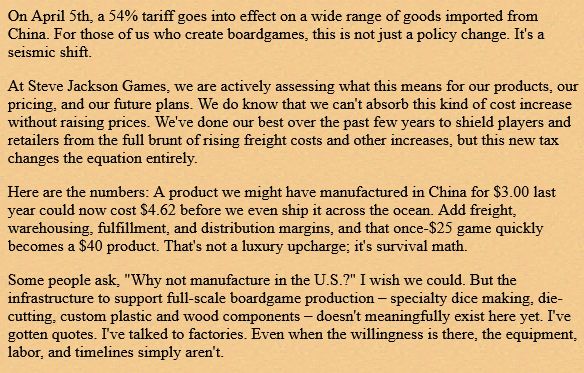
Welp.
the percentage increase is similar; presumably they're bundling a bunch of things (dice, boards, whatevever) into a larger product. they're likely paying that extra $1.62 (or whatever it is in each particular case) multiple times, which can easily add up to $15.You've got to love the "they taxed us $1.62, so we had to raise prices $15" logic. There is no economic force other than opportunism that would cause freight, warehousing, distribution, or fulfillment charges to increase proportionately to the tariff. Also, just being picky, it doesn't cost them extra "before they ship it across the ocean", the tariff is explicitly charged when it arrives in the US.
singlehandedly keeping the clash's rock the casper alive as the theme song for trump's tariffs may be one of the rare few joys left
you gotta see their attempt to reply and deny lmao
you gotta see their attempt to reply and deny lmao
while depressing predictions coming true am not seeking mystic points for, guessing their tariffs were done through AI surely is worth like a single whimsy point? Or pint? Of high percentage absinthe?"No we literally calculated tariff and non tariff barriers," he wrote, sharing a complicated-looking mathematical formula. But once the Greek symbols were stripped away, it outlined the same thing Surowiecki had described.
There were actually two other parameters in Trump's formula, but although they made the formula look visually more complex, these figures had no impact on the overall calculation. These parameters — the price elasticity of import demand and the elasticity of import prices with respect to tariffs — were set at values that meant they effectively cancelled each other out, Bloomberg noted.
"If you look at the formula, it's literally one variable divided by another variable, times 0.5. You could write this on the back of a cracker.... It looks like they were just trying to hide the fact that they did this in the most reductive, lazy way imaginable," Grozoubinski said.
"This was so lazily and amateurly done that I would not have a lot of confidence that the people at the helm of the U.S. economy are treating governance with the seriousness it deserves," he said. "But with implications that run into the hundreds of billions."
Last edited:
not sure if it worth posting this in game news.also not being american inherently comes with potential implications of perceived gloating

 www.eurogamer.net
www.eurogamer.net
we all still die to the climate apocalypse however. well, apart from the ultra wealthy bunker/space escapers I suppose

Nintendo delays US Switch 2 pre-orders due to tariffs
Those in the US looking to pre-order a Switch 2 will have to wait a little longer to do so than first expected.
we all still die to the climate apocalypse however. well, apart from the ultra wealthy bunker/space escapers I suppose

